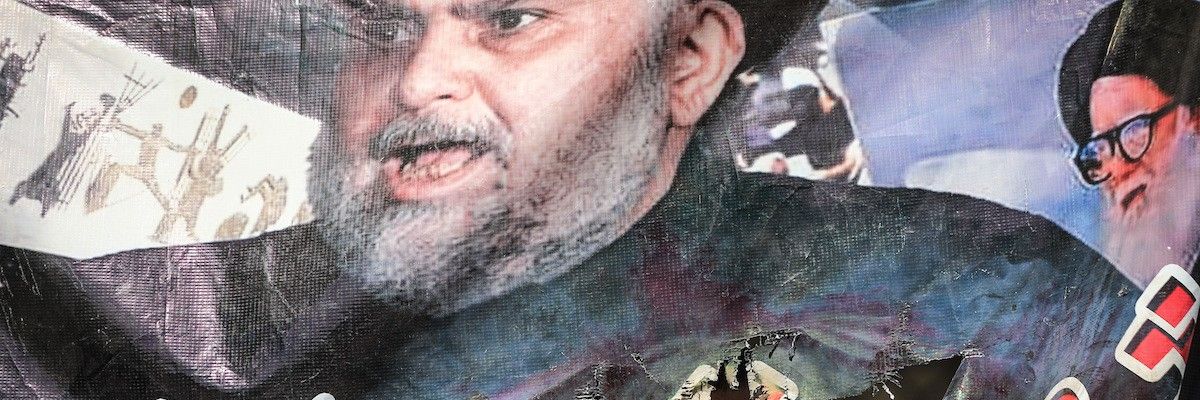The Iraqi political crisis that finally erupted in violence — claiming at least 30 lives in Baghdad as of this writing — still persists, but the shooting has stopped.
After Shia cleric Moqtada al-Sadr withdrew — not for the first time — from politics yesterday, his followers breached the walls of the Green Zone, occupied the government palace where parliament is housed, and exchanged fire with Iraqi security forces.
Last night Sadr held a press conference where he instructed his followers to leave Parliament and the Green Zone and declared that the shedding of Iraqi blood was forbidden. As of this writing Tuesday afternoon, protesters were heeding his call and leaving the fortified area.
The turning point seemed to have been Grand Ayatollah Katheer al-Haeri’s retirement and a declaration that his followers should henceforth look to Iran’s Supreme Leader Ayatollah Ali Khamenei for spiritual guidance. Among al-Haeri’s flock is none other than Sadr, the instigator of the current crisis. The younger cleric, while well known, lacks the religious bona fides and authority of his now deceased elders, and could not assume al-Haeri’s mantle. For Sadr, the implication of al-Haeri’s transfer of authority to Khamenei had a chilling effect on his campaign to split the Shia vote in Iraq. His determination to dominate a majority government also ran counter to Iran’s interest in a unified Iraqi Shi’a electorate.
In an instant – more or less – Sadr had gone from Khomeini’s challenger to subordinate.
In his remarks, Sadr announced he would heed al-Haeri’s edict, while observing that the crisis would not have happened if the opposing Iraqi Popular Mobilization Units had disbanded.
Last week, Responsible Statecraft observed that Sadr’s confrontational tactics, particularly the deployment of his forces to Parliament, could well culminate in violence. But Sadr had off-ramps available to him that probably looked inviting because, at the end of the day, Iraqi forces, especially the Popular Mobilization Units aligned with Iran and technically part of Iraq’s force structure, outnumbered and outgunned Sadr’s own followers.
Sadr’s attempt to intimidate his rivals was essentially a psychological operation; a bluff called by his opponents, who were able to mobilize state power to force his retreat. And with Haeri undermining him — and without the backing of Ayatollah Ali Sistani, which the movement claimed falsely to enjoy — the Sadrist blimp deflated.
Presumably, Sadr intends to regroup and take another shot at political dominance, but for the foreseeable future there is no plausible pathway. One perennial question regarding the government’s resolve, that is, when given the command, would its troops open fire? That has been answered. Fortunately, the government’s response was restrained. Their security forces could have reacted with greater violence and sparked an escalation of the fighting.
A related question, whether non-aligned young protesters who launched the Tishreen protest demonstration in 2019 would see Sadr as the reformist horse to ride, has also been answered: No.















